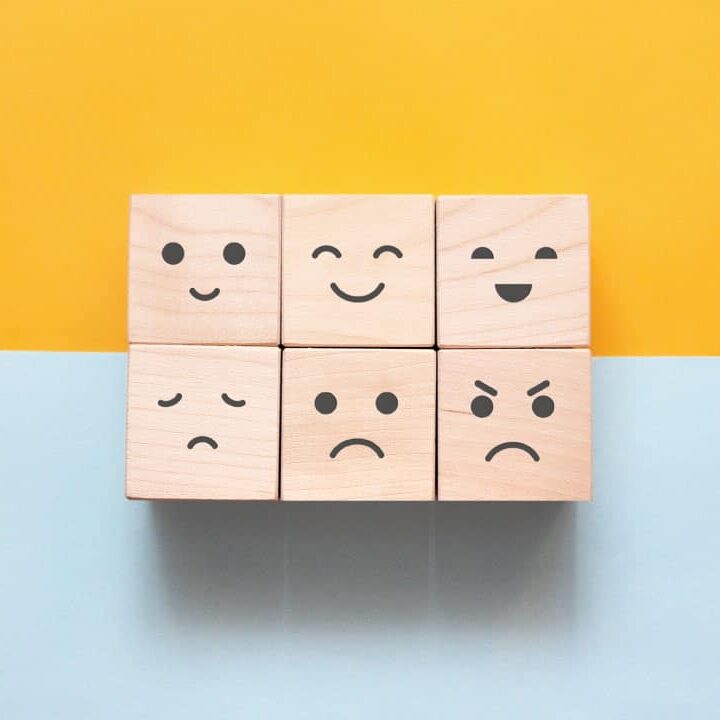

Take The Quiz
The ability to regulate emotions not only can help keep you in balance but also leads to getting your needs met. Emotions provide us with information about our environment, help us to make decisions, and guide us towards action to meet our needs.
We need our emotions!
Emotional Dysregulation Can Lead to Unhealthy Coping Strategies
We also need to know how to regulate emotions appropriate to the situation.
When emotions feel too high, emotional dysregulation can lead to unwanted consequences such as eating or drinking too much, avoiding people or places, or blurting out things you wish you hadn’t said, which can damage interpersonal relationships.
When our emotions are too low, we may procrastinate, lack motivation, or feel numb or indifferent and stop pursuing important goals.
The emotion quiz will help you establish a baseline measurement of how much your emotional dysregulation is affecting you today.
NOTE: This is not a diagnosis.
Review Your Quiz Score
What is Emotional Regulation?
Emotional regulation refers to our ability to manage and respond to an emotional experience.
We automatically use emotion regulation strategies every day, though some may be healthier than others. The ability to regulate emotions is a core component for healthy functioning.
Emotional regulation can be defined as the ability to identify, understand and accept emotional experiences; control impulsive behaviors when distressed; and flexibly manage emotional experiences as situationally appropriate (i.e., not flying off the handle at work!)
Review your test results to see which emotional dysregulation skills to focus on.

Follow Up To The Emotion Regulation Quiz
What the Emotion Dysregulation Test Can Tell You
Low emotion regulation scores (emotional dysregulation) are associated with: addictions / substance use, eating disorders, ADHD, anxiety, depression, PTSD, and personality disorders.
When emotions become persistent sources of distress or lead to self-destructive coping behaviors, it is time to take a step back and mindfully evaluate the manner in which you relate to your emotions.
For example, anxiety disorders are not simply a problem of too much anxiety; instead, one’s strategy and capacity to regulate one’s emotions is what contributes to the development of an anxiety disorder.
Use the Emotional Regulation Quiz as Baseline
Identifying and working on emotional dysregulation is an important component to mental health. You may also use this quiz to track your progress in therapy.
After working with a therapist, or completing some self-help work on your own, take the emotion test again and compare.
This will allow you to discover how far your personal journey has taken you. As you increase your skill in regulating your emotions, your overall score will decrease and you will feel less overwhelmed by your emotions.
Once you become more aware of how you are currently relating to and managing your emotions, you have the freedom to make meaningful changes where needed. By learning new skills and coping strategies, you can open the door to a new way of thinking and feeling!
Next Steps:
Read more about self-soothing strategies for some initial tips on soothing difficult emotions.
Learn emotion regulation skills
Join our DBT Skills group.
Seek therapy.
Reference:
Kaufman, E. A., Xia, M., Fosco, G., Yaptangco, M., Skidmore, C. R., & Crowell, S. E. (2015). The difficulties in emotion regulation scale short form (DERS-SF): Validation and replication in adolescent and adult samples. Journal of Psychopathology and Behavioral Assessment, doi:10.1007/s10862-015-9529-3













